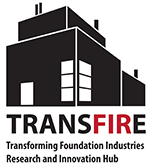For our latest site visit, the EDI team toured the foundry and heat house of the 66-acre Sheffield Forgemasters site, in Sheffield.
Sheffield Forgemasters has 700 employees, and specialises in integrated steel production, from preliminary design and R&D through to melting, casting, forging, finish machining, testing and delivery.
Their steel processing produces some of the most complex steel forgings and castings in the world, which are used in the most extreme environments. These include defence & marine, civil nuclear, offshore oil & gas, high pressure reactors, nuclear reactors, power generation, petrochemicals, renewables, construction, ingot & bar sectors.
Sheffield Forgemasters was privately owned from inception in the 1800s until 2021, when it was purchased by the Ministry of Defence. The £400M acquisition is being utilised towards a recapitalisation programme, which will see significant investment in defence critical assets.
EDI is overseen by the non-executive board that is linked to the Civil Service, UKGI & Whitehall. The EDI vision was initially to increase the representation of women, but they now recognise the importance of tackling more than just gender, but also being inclusive of diverse thoughts and abilities. They have recently hired a talent acquisition specialist to oversee diversity hiring. The short-, medium- and long-term strategic targets are linked directly to EDI and are also written in the 5- and 10-year business model plans.
During the 2020 pandemic lockdowns, the company lost 3 staff with a combined 151 years of service. The company loses 10% – 12% of staff annually through attrition. 25-year employment service is the norm and 40-yr service is not uncommon. For instance, starting as apprentices, Gareth (27), Martin (33) and Aleck (23) have a collective 83- year service in the company. 15-20 apprentices are hired annually, as the company values apprenticeships as a pathway of recruiting, retaining and for their talent pipeline progression. For example, Harriet, the HR Development specialist started out as an apprentice as well as Gareth Barker, the Chief Operating Officer.
The company also have an Industrial Chaplain, a female chaplain who goes round talking to employees 1-1 at their workstations on Tuesdays. Employees feel comfortable, safe and trust to speak to her on wellbeing issues. The company will also soon be offering a ‘1970s feel’ staff canteens and other employee benefits that they had in 1970s steelworks, to encourage staff to feel as part of a family, this is also aimed at attracting and retaining new talent. To be inclusive, they allow flexible working to allow staff to arrive up to 9.30am and leave anytime from 2.30pm, employees can also work 1-2 days from home. To be inclusive and to rebalance the flexible working amongst factory staff, the company is looking into offering them 5 half days (2.5 days) to take as paid holiday, which is not linked to their annual holiday.
Written by Ciel Newton

